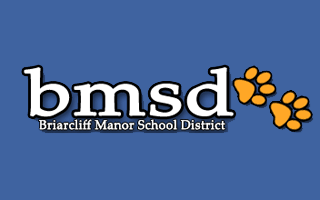 Dear Editor,
Dear Editor,
I am writing to you as I have many concerns about the Budget proposed at the March 10, 2014 Board of Education meeting. I am again expressing my views as an individual and not those of the Board.
Briarcliff’s Spending Increase is 3 Times Larger than Other School Districts
The Superintendent’s Budget proposes a spending increase of 6% ($3 million) over the current year’s budget even though enrollment is decreasing by 22 students.
As this year’s actual expenses will be far below budget, a more appropriate comparison would be next year’s budget against this year’s actual expenses, which would show a spending increase far greater than $3 million.
Briarcliff’s spending increase is way out of line with our neighbors’ [budgets] – so much so that it is a Black Swan event. The community correctly pointed out at the Board meeting that our spending increase is three times larger than the average Westchester school district.
For example, Blind Brook and Bronxville will each increase spending by 2%. Looking at it from a different perspective, Chappaqua, a district 2 ½ times the size of Briarcliff, has proposed a spending increase of only $2 million.
Last Year’s Inaccurate Budget Results in $2.2 Million or More in Excess Funds.
As I have been predicting, as a result of last year’s inaccurate budgeting, the District will have about $2.2 million in additional funds at the end of this year. My analysis indicates that the extra funds could total substantially more than $2.2 million.
The Numbers Don’t Add Up
By no means is this a critique of the programmatic changes; however, the costs of the initiatives do not appear to justify the increase in spending. Only 1.5 employees are being added, yet per-pupil cost is increasing from $29,800 to $32,100.
Blind Brook and Bronxville have per pupil costs of $27,900 and $26,900, respectively.
It appears as though Briarcliff’s budget is bloated and/or little effort is being made to control costs. As with last year, the numbers just don’t add up.
Last Year’s Cuts Are Not Being Restored
Last year the community was told that cuts were necessary because the District didn’t have enough money. The budget does not restore cuts made despite at least $2.2 million in surplus funds and the large proposed spending increase. Some restorations would have minor associated costs; for example, second modified basketball teams for boys and girls.
A Tax Increase is Not Necessary – A Tax Decrease is Achievable
While a proposed 2% tax increase may sound reasonable, it is no accomplishment. The 6% spending increase would have resulted in a much higher tax increase if not for the excess funds produced by last year’s inaccurate budgeting. Without these additional funds, the proposed budget would obliterate the property tax cap.
As expenses appear to be overstated next year and there are excess funds being generated this year, with only a little tinkering we can eliminate the tax increase. Sharpening the pencils can produce a significant tax decrease. I have asked the Superintendent to develop an alternative budget with a tax decrease and have offered my assistance in doing so.
Capital Reserve Fund Signals Even More Funds Available
The Board and Administration raised the idea of asking voters to approve a LARGE Capital Reserve Fund.
Approval of such a fund would mean the Board would have carte blanche to deposit excess funds into it. Excess funds are generated at the end of a school year when budgets are bloated and residents are overtaxed — like what is happening this year. There is only one way to fund a Capital Reserve – with money — your money. It will result in a permanently higher level of taxation.
The New York State Office of State Comptroller’s Division of Local Government and School Accountability writes: “RESERVE FUNDS SHOULD NOT BE MERELY A ‘PARKING LOT’ FOR EXCESS CASH OR FUND BALANCE.”
I believe that this proposal would not have been floated unless it was anticipated that there would be even more excess funds generated this year and in the future — otherwise there would be no reason to establish the Fund.
I am in favor of spending money on capital improvements to maintain the quality of our facilities for our students and faculty, but as a matter of fairness, current taxpayers should only pay current expenses. They should not be asked to pay for future expenses. Good business practice dictates spreading the costs of capital projects over time with long-term bonds. This way residents who reap the benefits of the use of facilities pay for those benefits. Briarcliff has a history of overwhelmingly supporting bond votes, including as recently as January for the practice field.
The proposed budget includes $500,000 for capital projects, apparently security upgrades that have been contemplated by the Administration for a long time. In November I questioned the urgency of holding a Bond Referendum in January for remediating the practice field. Had the security upgrades been included with remediating the practice field in one Bond referendum, almost all of the proposed tax increase would have been eliminated.
Please Consider Becoming Involved. Community Participation is Important.
On April 7th, there will be a second budget hearing; on April 21st there will be the budget adoption by the Board of Education; and on May 20th there will be the budget vote.
Regards,
Paul Wasserman
Briarcliff School Board Member






